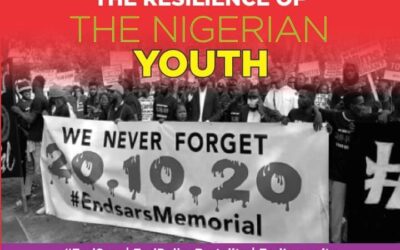By Christopher Odetunde, Ph.D.
Whenever I read about our growing foreign reserves while, at the same time, our national reserve: human, technological, moral capacities are dwindling, I simply have moments of internalized cry and supplication.
Foreign exchange reserve is the term used to describe foreign exchanges, gold, SDRs, and even IMF reserve position as this total picture is readily available. Foreign reserves can also be the assets of central Bank of a nation that are held in different convertible currencies such as euro, dollar, and yen to back a nation’s liabilities or even to make a nation’s currency convertible. We need to thank OBJ, yes, thank him for boosting our foreign exchange through his frugality. Unfortunately, OBJ built our nation’s foreign reserves without building our human reserves. He built our foreign reserves without building our industrial capacity. He built the nation’s external reserves without getting control on our epileptic energy supplies. Some would say, he exacerbated our energy sector by giving juicy contracts to cabals he consciously created for selfish reasons.
Not since the administration of General Yakubu Gowon has Nigeria’s federal reserves been bursting in the shims. Unfortunately, General Gowon, because of his youthful exuberance, lack of global political dexterity and inexperience signaled to the looters that Nigeria’s problem was not money but how to spend it. Indeed, members of subsequent military and civilian governments converted excess reserves to their personal assets and this changed from political of service embarked upon by Sir Ahmadu Bello, Chief Obafemi Awolowo, and Dr. Nanmdi Azikwe to self-serving politics.
There are several advantages for building a nation’s foreign reserves. One of such reasons is, if a country desires to have a government-influenced exchange rate, holding bigger reserves gives the country better ability to manipulate the currency market. Holding huge foreign reserves does, however, induce opportunity cost. The quasi-fiscal costs of holding reserves are the gap between the low-yield assets that returns managers typically hold, and the average cost of government debt within the country. In addition, many governments have suffered huge fiscal losses on the management of their reserves portfolio. Whenever there is a currency crisis and all reserves vanish, there is ultimately a fiscal cost. Even when there is no currency crisis, there can be a fiscal cost, as took place in 2005 and 2006 with China, which holds huge USD assets because their CMY or RMB has continuously appreciated.
On the other hand, Foreign exchange reserves are important indicators of a nation’s ability to repay foreign debt, for currency defense, and are often used to determine credit worthiness of nations. Other government funds that are counted as liquid assets that can be applied to liabilities in times of crisis include stabilization funds. Now that Nigeria has high foreign reserves, may be she needs to consider creating in cooperation with other African nations her own investment firm from its foreign exchange reserves to benefit Africa, sort of African Monetary Funds, AMF. Instead of Africans transferring their funds to developed nations, they can transfer them to AMF which can use the funds to develop Africa for Africans and relief Western nations from using their funds for development in Africa.
Many of us, in the past, had cautioned Nigeria from falling into the Gowon careless statement on the Nigerian foreign reserves. Perhaps, understanding that some of our current politicians are kleptomaniacs, it may be unwise to accumulate funds that are lootable while citizens are left destitute. The types of fuzzy statistics about foreign reserves that politicians invoke are meaningless when there is poverty in the land. Foreign reserves can only be meaningful when visionary leaders appropriately translate them to measurable infrastructural development, technological growth that catches up with the world, improved security of lives and properties, advances in scientific knowledge and research which seek to improve knowledge and development of human capital, re-formation of national career (Nigeria Aviation carrier or whatever we may call it) which even poor African countries have and are proud.
High foreign reserves will start making sense to Nigerians when hard working citizens can buy food and private sectors can create jobs effortlessly. High foreign reserve will start making sense when government can provide scholarships to brilliant Nigerian students and give then impetus to come back home after their studies. High foreign reserves will start making sense when there are improvement in infrastructures and constant electricity. As long as our political elites believe that the way to show opulence is by transferring stolen funds to other countries, buying mansions in every nation’s capitals in the world and making Nigeria destitute, growth in our foreign reserves will be meaningless.
If Nigeria continues to build on political service to the nation, “servant leadership,” Nigeria better start constructing national highway networks, rail and mass transit systems that will facilitate movements of goods and humans, improve commerce and interstate activities on a larger scale. More importantly, we may be able to dislodge those President Yar ‘Adua blames for disallowing flow of electricity and water. In reality, any achievement is a measure of adequate management of surplus foreign reserves of a nation not the accumulation.
It is surprising that each succeeding Nigerian administration is so powerless to effectively challenge and dislodge the enemies of Nigeria that seem to be holding the hand of our clock of progress still. These enemies of Nigeria are those that protect James Ibori from arrest, trial and persecution. These are same Nigerians that are trigger happy to increase pump fuel price while they are reaping benefits from our sweat and blood. They are those that see the truth and fail to speak it out. It will be a shame if increasing incidence of money laundering by the leaders, massive looting and depletion of State Treasuries are the news items that are dominant on the Nigerian State in light of all these reported growth in our foreign exchange reserves while citizens are going hungry. More importantly, how do Nigerians plan to help the government to create society of fairness and prosperity? This is what patriotic citizens ought to embark upon and what they should demand from subsequent leaders and how to be sycophants for temporary financial relief.
Dr. Christopher Odetunde wrote from Houston, Texas, USA.




